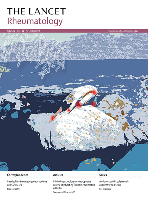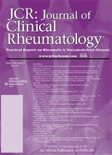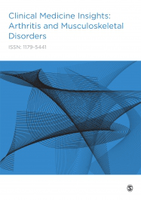
Lancet Rheumatology
Scope & Guideline
Elevating the discourse in rheumatology and immunology.
Introduction
Aims and Scopes
- Rheumatic Disease Research:
The journal emphasizes research on various rheumatic conditions, including systemic lupus erythematosus, rheumatoid arthritis, and Sjögren's syndrome, exploring their pathophysiology, diagnosis, and management. - Clinical Trials and Interventions:
A significant focus is on clinical trials evaluating new therapies, treatment strategies, and interventions aimed at improving patient care and outcomes in rheumatology. - Patient-Centered Approaches:
The journal promotes research that incorporates patient perspectives, emphasizing the importance of patient-reported outcomes and engagement in treatment decisions. - Emerging Therapies and Precision Medicine:
A core area of interest involves exploring novel therapeutics, including biologics and targeted therapies, and their application in personalized medicine for rheumatic diseases. - Public Health and Epidemiology:
Research addressing the epidemiology of rheumatic diseases, health disparities, and the impact of socioeconomic factors on disease management is also a critical focus. - COVID-19 and Autoimmunity:
Given the recent pandemic, the journal has increasingly published studies on the intersection of COVID-19 and rheumatic diseases, including vaccine responses and management strategies.
Trending and Emerging
- Digital Health and Telemedicine:
Recent publications highlight the growing integration of digital health technologies and telemedicine in managing rheumatic diseases, especially in the context of the COVID-19 pandemic. - Vaccine Research in Autoimmune Diseases:
There is a marked increase in research focused on vaccine responses among patients with autoimmune conditions, particularly regarding COVID-19 vaccinations and their implications for treatment. - Health Equity and Social Determinants:
Emerging themes include a focus on health equity, social determinants of health, and their impact on the management of rheumatic diseases, addressing disparities in care. - Patient Engagement and Self-Management:
There is a rising trend in research exploring patient engagement strategies and self-management approaches, emphasizing the importance of involving patients in their care. - Precision Medicine and Biomarkers:
The journal increasingly features studies on precision medicine, with a focus on identifying biomarkers that can guide treatment decisions and improve patient outcomes. - COVID-19 Impact Studies:
The ongoing impact of COVID-19 on rheumatology care continues to be a significant area of research, with studies evaluating the effects on disease management and patient safety.
Declining or Waning
- Traditional Therapies:
There has been a noticeable decline in papers focused on traditional treatments for rheumatic diseases, such as corticosteroids and non-steroidal anti-inflammatory drugs, as the field shifts towards biologics and targeted therapies. - Basic Science Research:
The journal has published fewer studies centered exclusively on basic science, such as bench research, as the emphasis moves towards translational and clinical research that directly impacts patient care. - Longitudinal Studies in Established Cohorts:
Research utilizing long-term follow-up of established cohorts has decreased, potentially as the emphasis shifts towards more immediate clinical trials and interventions. - Single-Center Studies:
There appears to be a waning interest in single-center studies, with a preference for multicenter collaborations that can provide broader insights and more robust data.
Similar Journals

European Journal of Rheumatology
Elevating Standards in Rheumatology ScholarshipEuropean Journal of Rheumatology is a premier, peer-reviewed journal that has been paving the way for innovative research and in-depth analysis in the field of rheumatology since its launch. Published by AVES, this Open Access journal has been accessible to researchers, professionals, and students worldwide since 2014, promoting the sharing of valuable knowledge on rheumatic diseases and their treatment. With an ISSN of 2147-9720 and an E-ISSN of 2148-4279, it provides a prominent platform for groundbreaking studies and clinical evaluations that bridge scientific discovery with practical application. The journal’s mission is to enhance the understanding of rheumatological conditions and facilitate advancements in therapeutic strategies, making it an essential resource for anyone devoted to the improvement of patient care in this dynamic field. The European Journal of Rheumatology is committed to upholding the highest standards of scholarly publishing and aims to foster collaboration among researchers and practitioners across Europe and beyond.

Modern Rheumatology
Transforming Research into Clinical ExcellenceModern Rheumatology is a premier journal dedicated to advancing the field of rheumatology through high-quality peer-reviewed research. Published by Oxford University Press, this journal reflects the latest developments in rheumatologic medicine, catering to researchers, clinicians, and students alike. With an H-Index highlighting its scholarly impact, Modern Rheumatology occupies a notable position, ranking Q2 in both the fields of Medicine and Rheumatology in 2023, and is listed among the top 25 journals in its category by Scopus. Spanning from the year 2000 to 2024, the journal features a diverse array of topics aimed at addressing current challenges and innovations in the field. Although it does not offer Open Access, it provides essential insights for professionals seeking to stay abreast of evolving treatment modalities and research breakthroughs. Located in the heart of the United Kingdom, Modern Rheumatology is a vital resource for anyone committed to enhancing the understanding and treatment of rheumatic diseases.

JCR-JOURNAL OF CLINICAL RHEUMATOLOGY
Enhancing Insights into Rheumatic DisordersJCR-Journal of Clinical Rheumatology, published by Lippincott Williams & Wilkins, is a premier outlet dedicated to the field of rheumatology, recognized for its contributions and relevance among medical journals. Boasting an impact factor reflective of its vital role in disseminating innovative research, it currently holds a Q2 category ranking in Medicine (miscellaneous) and a Q3 ranking in Rheumatology as of 2023. With its convergence years spanning from 1995 to 2024, the journal aims to foster the advancement of knowledge in clinical practices, therapeutic advances, and patient management strategies concerning rheumatic diseases. Researchers, professionals, and students can access a wealth of benchmark studies and peer-reviewed articles, enhancing their understanding and collaboration within this dynamic field. By bridging clinical insights with rigorous research, the JCR-Journal of Clinical Rheumatology remains an important resource for advancing the understanding of rheumatologic disorders and improving patient care.

Revista Cubana de Reumatologia
Bridging local insights with global expertise in rheumatology.Revista Cubana de Reumatologia is a prominent open-access journal published by the SOC CUBANA REUMATOLOGIA, dedicated to advancing knowledge in the field of rheumatology since its inception in 1998. With an ISSN of 1606-5581 and an E-ISSN of 1817-5996, this journal aims to disseminate high-quality research that addresses various aspects of rheumatic diseases, their diagnosis, treatment, and management. Located in Havana, Cuba, the journal serves as a vital platform for both local and international researchers, professionals, and students interested in the latest developments within the specialty. By embracing an open-access policy, the journal ensures that groundbreaking studies are freely available to a global audience, fostering collaboration and innovation in rheumatological research. As the field continues to evolve, Revista Cubana de Reumatologia remains committed to addressing the emerging challenges and trends, making it an essential resource for practitioners and scholars alike.

International Journal of Rheumatology
Empowering practitioners with cutting-edge research insights.The International Journal of Rheumatology, published by HINDAWI LTD, serves as a vital resource for researchers and practitioners in the fields of rheumatology and immunology. Since its inception in 2009 as an Open Access journal, it has aimed to disseminate high-quality, peer-reviewed research to foster advancements in the understanding and treatment of rheumatic diseases. With an ISSN of 1687-9260 and E-ISSN of 1687-9279, the journal has become increasingly relevant, achieving a respectable Q3 ranking in both the Immunology and Rheumatology categories in 2023, and earning a Scopus rank of #27 out of 73 in Medicine Rheumatology. The journal's commitment to excellence is reflected in its wide-ranging scope, addressing current trends and innovations through empirical studies, reviews, and clinical insights. Its global readership, based in the United States and beyond, highlights the journal's importance in shaping the discourse within rheumatological research. As it converges through the years from 2010 to 2024, the International Journal of Rheumatology continues to be a cornerstone for sharing groundbreaking findings and fostering collaboration in the rheumatic disease community.

Clinical Medicine Insights-Arthritis and Musculoskeletal Disorders
Transforming understanding of arthritis and beyond.Clinical Medicine Insights-Arthritis and Musculoskeletal Disorders, published by SAGE PUBLICATIONS LTD, is an esteemed open-access journal dedicated to advancing knowledge in the field of rheumatology and related immunological disorders. Since its inception in 2008, the journal has provided a platform for researchers and clinicians from around the world to disseminate cutting-edge studies and insights into arthritis and musculoskeletal conditions. Based in New Zealand, this journal has maintained a commendable standing in academic circles, evidenced by its Q3 quartile rankings in both Immunology and Allergy and Rheumatology categories for 2023, alongside respectable Scopus rankings. The journal serves as a vital resource for healthcare professionals, researchers, and students, facilitating enhanced understanding and treatment of musculoskeletal disorders through high-quality research and peer-reviewed articles. With a focus on fostering interdisciplinary collaboration and innovation in the field, Clinical Medicine Insights-Arthritis and Musculoskeletal Disorders is essential reading for those committed to improving patient outcomes and advancing scientific knowledge.

Current Rheumatology Reviews
Shaping the future of rheumatology through rigorous reviews.Current Rheumatology Reviews is an esteemed journal dedicated to publishing comprehensive reviews on advancements in the field of rheumatology. Established by Bentham Science Publishers, this journal has become a vital resource for researchers, clinicians, and students seeking to stay abreast of the latest developments and therapeutic strategies from 2006 to 2024. Located in the United Arab Emirates, it caters to a global audience, delivering insights that have been pivotal in shaping clinical practices. With an impact factor reflective of its Q3 status in Rheumatology by 2023, the journal ranks #46 out of 73 in the Scopus database, positioning it in the 37th percentile in the discipline. Although it operates without open access, its high-quality content ensures that each article undergoes rigorous peer review, making the Current Rheumatology Reviews a trusted platform for disseminating critical research findings and reviews that drive forward the understanding and treatment of rheumatic diseases.

Open Access Rheumatology-Research and Reviews
Elevating Rheumatology Research for Global Impact.Open Access Rheumatology-Research and Reviews, published by DOVE MEDICAL PRESS LTD, is a distinguished journal that has been a vital part of the rheumatology field since its inception in 2009. With an ISSN of 1179-156X, this journal is dedicated to disseminating groundbreaking research and comprehensive reviews in the discipline of rheumatology, making it an essential resource for researchers, clinicians, and students alike. It boasts an impressive Q3 ranking in the Rheumatology category for 2023, reflecting its relevance and quality within a highly competitive landscape, where it ranks in the 51st percentile among its peers as indicated by the Scopus Ranks. As an open-access platform, it ensures that critical findings and insights are easily accessible to a global audience, promoting collaboration and knowledge sharing. The journal's scope includes a wide range of topics within rheumatology, aimed at advancing understanding and treatment of musculoskeletal disorders and autoimmune diseases. Its headquarters is located in New Zealand, positioning it as a key player in the international research community.

ZEITSCHRIFT FUR RHEUMATOLOGIE
Connecting researchers and clinicians for better rheumatic disease outcomes.ZEITSCHRIFT FUR RHEUMATOLOGIE, published by Springer Heidelberg, serves as a vital platform in the field of rheumatology, providing researchers, clinicians, and students with cutting-edge findings and discussions related to the diagnosis, treatment, and management of rheumatic diseases. Since its inception in 1974 and continuing until 2024, this journal retains its commitment to disseminating significant scientific work within this specialized domain. Although it is currently categorized in the Q4 quartile for Rheumatology and ranks 47 out of 73 in Scopus, reflecting its burgeoning presence, the journal is dedicated to evolving and gaining prominence in the academic community. By offering valuable insights and fostering scholarly discourse, ZEITSCHRIFT FUR RHEUMATOLOGIE plays a crucial role in advancing rheumatology research and enhancing patient care practices worldwide. The journal presents an opportunity for its readers to engage with contemporary studies and enrich their understanding of rheumatic ailments.

JOURNAL OF RHEUMATOLOGY
Pioneering Insights for the Future of Rheumatic Disease ManagementJOURNAL OF RHEUMATOLOGY, published by the J Rheumatol Publ Co, stands as a distinguished platform within the fields of rheumatology and immunology since its inception in 1974. With an impressive impact evidenced by its 2023 rankings—Q1 in Rheumatology and Q2 in both Immunology and Allergy—the journal has secured its position as a vital resource for researchers and practitioners alike. The journal is dedicated to advancing clinical and experimental knowledge in the pathogenesis, diagnosis, and management of rheumatic diseases, providing a rich repository of peer-reviewed articles that drive innovation in treatment protocols and patient care. Although it operates under a subscription model, the journal remains accessible to a broad audience committed to advancing their understanding of these critical areas. Located in Toronto, Canada, it continues to attract contributions from leading experts globally, making it an essential read for anyone keen on staying at the forefront of rheumatological research and practice.